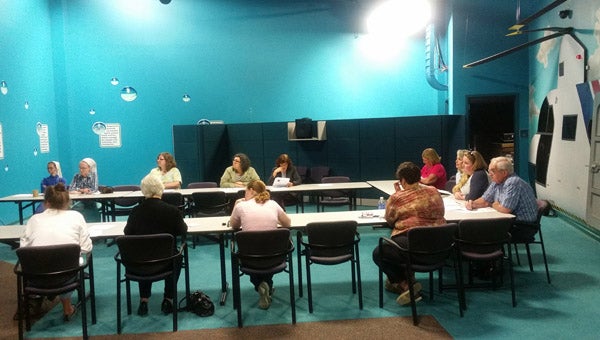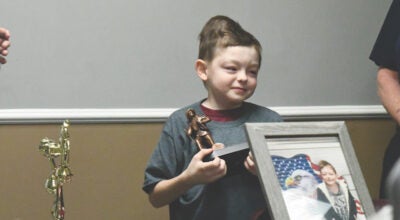Cottage Food Law course held at Alabama Power
Published 4:18 pm Wednesday, March 16, 2016

Participants in the cottage food law class learned which foods could be sold to the public and how to safely prepare them. The class was held at Alabama Power in Clanton on Wednesday. (Photo by Anthony Richards / Advertiser)
A Cottage Food Law course was offered at Alabama Power in Clanton on Wednesday for those looking to gain a license to sell baked goods from their home.
Janice Hall, regional agent at the Extension Office at Alabama A&M and Auburn Universities, was in charge of the course and led the discussion among the class of 13 members.
“The class is set up for individuals who want to start a business of baking and selling [food] from their home,” Hall said. “They are learning how to safely prepare those products for the public.”
According to Hall, the class helps separate the certain foods that can and cannot be sold to the public from a private residence.
Foods that are allowed include items such as candy, cookies, cakes and pies.
Any items that require refrigeration are considered hazardous and are not permitted to be sold. These include dishes with a crème filling or whipped topping, as well as vegetables, meats, milk and cheese.
“This is a good opportunity for anyone looking for a supplement to their income or to become their income,” Hall said.
The course has been offered in Chilton County in the past on a handful of occasions.
“Not everyone hears about it, and that’s why we continue to offer it,” Hall said. “We set it up if we see the need or an interest.”
According to Hall, there are some people who have taken the class in the past and have used it to be active and find success as a business and in food preparation.
Yuliya Childers attended the course and plans to begin baking bread for farmer’s markets.
Beyond that point she is not sure, but appeared anxious to see where it goes from there.
“I’ve learned a bunch, and it will be very useful,” Childers said. “There were definitely some questions answered.”
A test was taken at the end of the course. Those that passed the exam would be cleared for a license.
Wesley Friday had taken culinary classes in the past, and took the course with the goal of finishing what he started by getting the required license.
“I just love to get alone in the kitchen and start baking,” Friday said.






